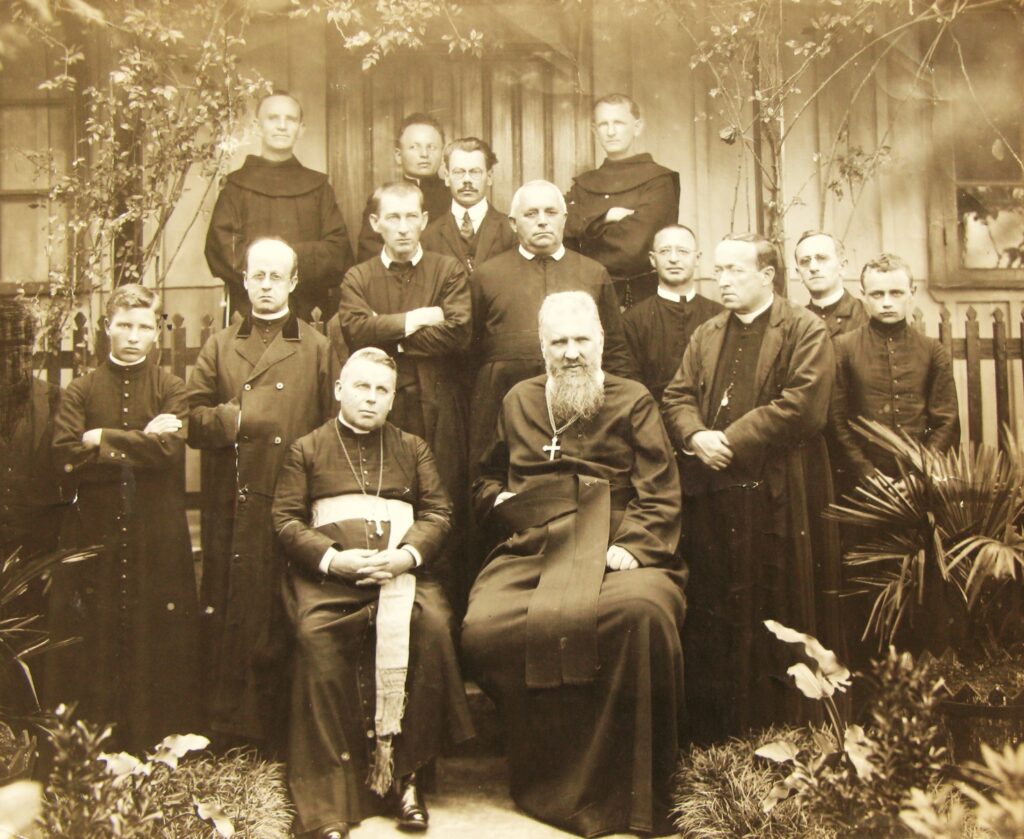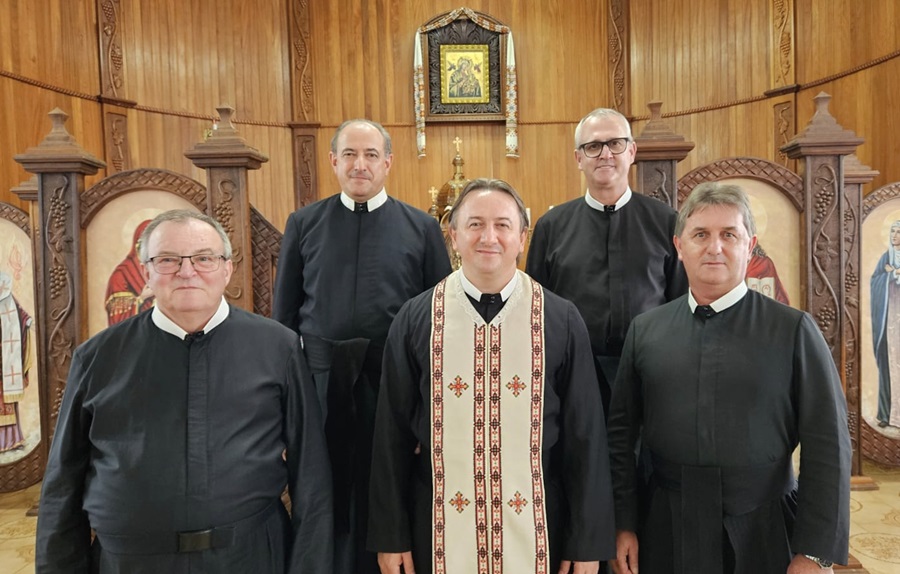Province of Saint Joseph (Brazil)

PROVINCIA SANCTI IOSEPH IN BRASILIA
Sedes Provincialis:
RESIDÊNCIA
DOM EFRAIM BASÍLIO KREVEY, OSBM
Rua Catarina Basso Brunetti, 29 — São Braz
82315-120 Curitiba, PR – BRAZIL
Tel.: +55 41 3324 7441
E-mail: [email protected]
Web: osbm.org.br
The history of the Order of Saint Basil the Great of Saint Josaphat (Basilian Fathers) in Brazil is closely tied to the story of Ukrainian immigration. It began in the late 19th century with the arrival of one priest and grew through the tireless work of many missionaries over more than 120 years.
The first Ukrainian immigrants arrived in Brazil in 1895. By 1897, nearly 15,000 had settled in the state of Paraná. The town of Prudentópolis became the main center of Ukrainian life and Basilian activity, while other communities developed in Rio Claro and the southern regions of the state, initially served by Eparchial clergy.
Life for the immigrants was extremely difficult. They faced poverty, a lack of infrastructure, and above all, a deep spiritual neglect — there were almost no priests to care for their religious needs. The Ukrainian leaders of Prudentópolis appealed to the Basilian Fathers in Ukraine, urgently asking for missionaries. Their request was answered quickly: on June 21, 1897, Fr. Sylvester Kizyma, OSBM, arrived in Curitiba. Soon afterward he moved to Prudentópolis, where he immediately began ministering to the people, baptizing children, blessing marriages, and bringing back sacramental life that the immigrants had been deprived of for years.
In 1898, Fr. Sylvester built the first chapel in Prudentópolis, dedicated to St. Basil the Great. A larger church, also dedicated to St. Basil, followed in 1904. That same year, he was joined by Fr. Antony Martyniuk, OSBM, from Ukraine. Together, they began organizing parishes and, within a year, built five more churches in nearby villages. Fr. Martyniuk was a gifted preacher who also started the Apostleship of Prayer and promoted schools for the immigrant children.
In the years that followed, more missionaries arrived from Ukraine, including skilled builders, musicians, and preachers. The Basilian mission grew rapidly. By 1930, there were enough priests and brothers to form a vice-province. With Vatican approval, this was formally established in 1931, and a novitiate was opened in Prudentópolis.

The Basilian Fathers also contributed greatly to education and publishing. They bought a printing press in 1909, which led to the creation of several periodicals — most notably Misionar (The Missionary) and Prácia (Work)—that continue to this day. In 1935, the vice-province opened St. Joseph’s Seminary in Prudentópolis to foster vocations. Even those who did not become Basilian monks benefitted from the solid education provided there.
By 1948, when the Basilians celebrated the 50th anniversary of their work in Brazil, the vice-province had 47 members. It had grown strong enough to become a full Province of St. Joseph, officially established on May 22, 1948. The first Provincial Superior (Protohegumen) was Fr. Joseph Martynets, OSBM.
The Basilian Fathers in Brazil Today

Today the Province of St. Joseph continues to flourish. The Basilian Fathers minister in the states of Paraná, Santa Catarina, and São Paulo, serving 13 parishes, each with several churches and chapels. They also run two important educational institutions:
• Colégio São José in Prudentópolis, a primary and secondary school housed in the former seminary building.
• Faculdade São Basílio Magno (FASBAM) in Curitiba, a higher education institute offering a philosophy program accredited by the Brazilian Ministry of Education since 2014.
Over the years, five Basilian Fathers from the Province of St. Joseph have been called to serve as bishops.

 Basilian Order of Saint Josaphat
Basilian Order of Saint Josaphat 

